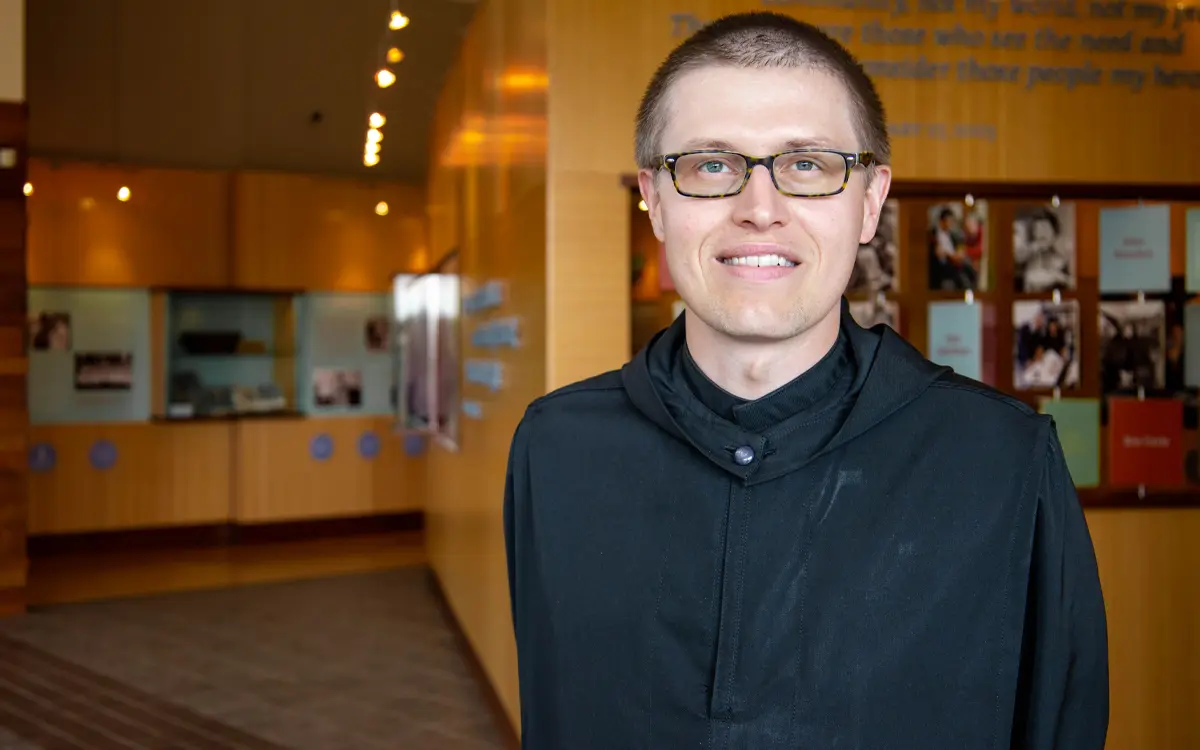LATROBE, PA – Rev. Michael Antonacci, O.S.B., C’07, S’14, assistant professor of physics at Saint Vincent College, and Dr. Anis Maize, professor emeritus of physics, recently published and article in “The American Journal of Physics.” The article, “Physics writing in the era of artificial intelligence,” discusses how Artificial Intelligence (AI) tools have impacted a professor’s ability to teach physics and physics writing.
After noticing the increase in student use of the ChatGPT and other publicly available AI large language models, Fr. Michael and Dr. Maize decided to begin the conversation of AI utilized in physics writing. With a sufficient lack of dialogue on the topic within the physics department, they implemented their own observations and concerns on the topic to write their article.
“Neither Dr. Maize nor I are at the point of enthusiastically embracing AI large language models as general educational tools in physics because it is not clear to us how student use of these tools will impact their education,” Fr. Michael replied when asked if either had to alter their own classroom settings in response to new AI writing. “At the same time, strictly forbidding the use of AI tools will be very difficult to enforce with the current text classifiers¾AI models trained to identify human vs AI-written text¾so I think professors will be forced to design assignments that cannot be easily done with AI alone.”
While Fr. Michael has allowed his students to use AI as a brainstorming tool, so long as they submit proper citations, he still believes AI usage to be in poor taste.
“In physics writing,” Fr. Michael continued, “students often have to analyze the results of a particular experiment they did during lab. An AI model cannot perform such an analysis because it does not have the data, the experience of doing the experiment or the ability to reflect on what was done.” With a sufficient lack of information, the AI would be left making up details to fit the parameters provided, leading to inaccurate results and a student without the ability to properly analyze the experiment they performed.
“Since AI tools are already being used in professional scientific settings,” he explained, “I think it is better that students learn about their limitations and responsible use earlier than risk making a career-damaging mistake later.”
The article was published on August 1, 2023 in Volume 91, Issue 8 of the American Journal of Physics. The article can also be found at https://doi.org/10.1119/5.0159871.
“The American Journal of Physics” (AJP) is a journal that publishes papers that meet the needs and intellectual interests of college and university physics teachers and students. AJP was founded in 1933 under the name The American Physics Teacher before it was changed in 1940 after covering the first 7 volumes. AJP intends on publishing articles that push the educational and cultural aspects of physics that [prove] useful, interesting, and accessible to a diverse audience of physics students, educators, and researchers.
Father Michael has released a number of works in the past few years, including a more recent article published on August 26, 2022. His paper was published in “The Physics Teacher” in an issue that was released in September of 2022. The journal focuses on publishing “peer-reviewed papers on the teaching of introductory physics and on topics such as contemporary physics, applied physics, and the history of physics. To learn more about Father Michael’s previous work, visit https://doi.org/10.1119/5.0064035.
Father Michael is a Benedictine monk and priest in Saint Vincent’s monastery and an assistant physics professor at the college. He graduated with a Ph. D from University of North Carolina at Chapel Hill, and he received his B.S from Saint Vincent College.

Rev. Michael Antonacci, O.S.B.,